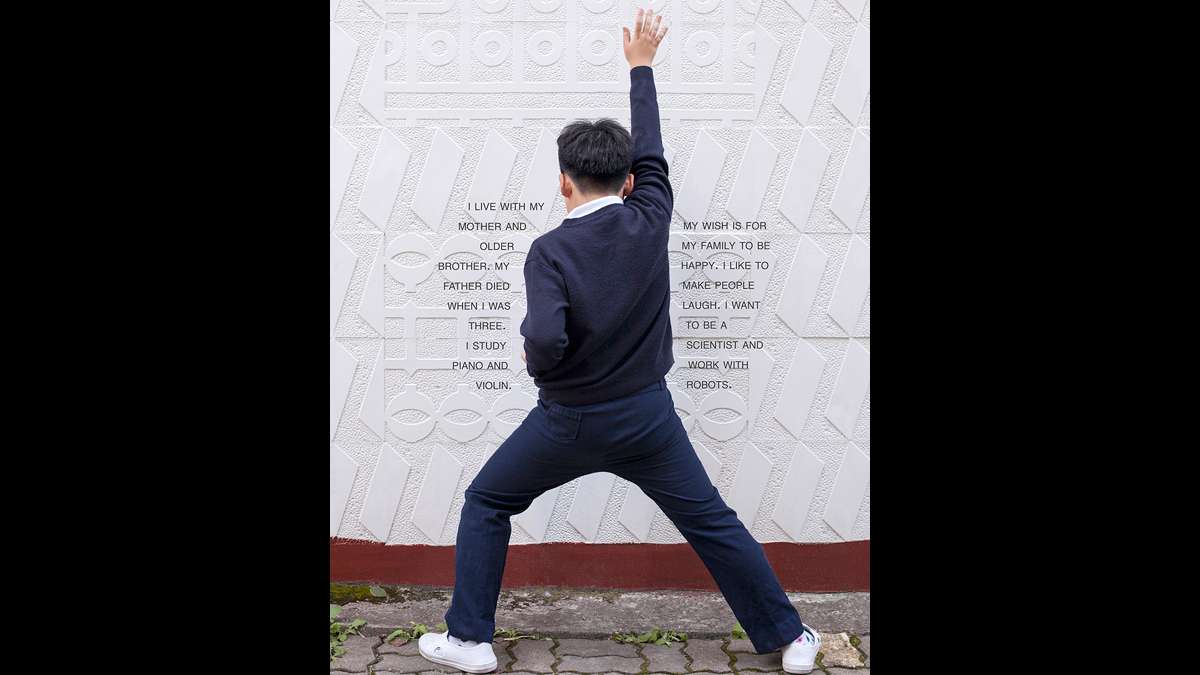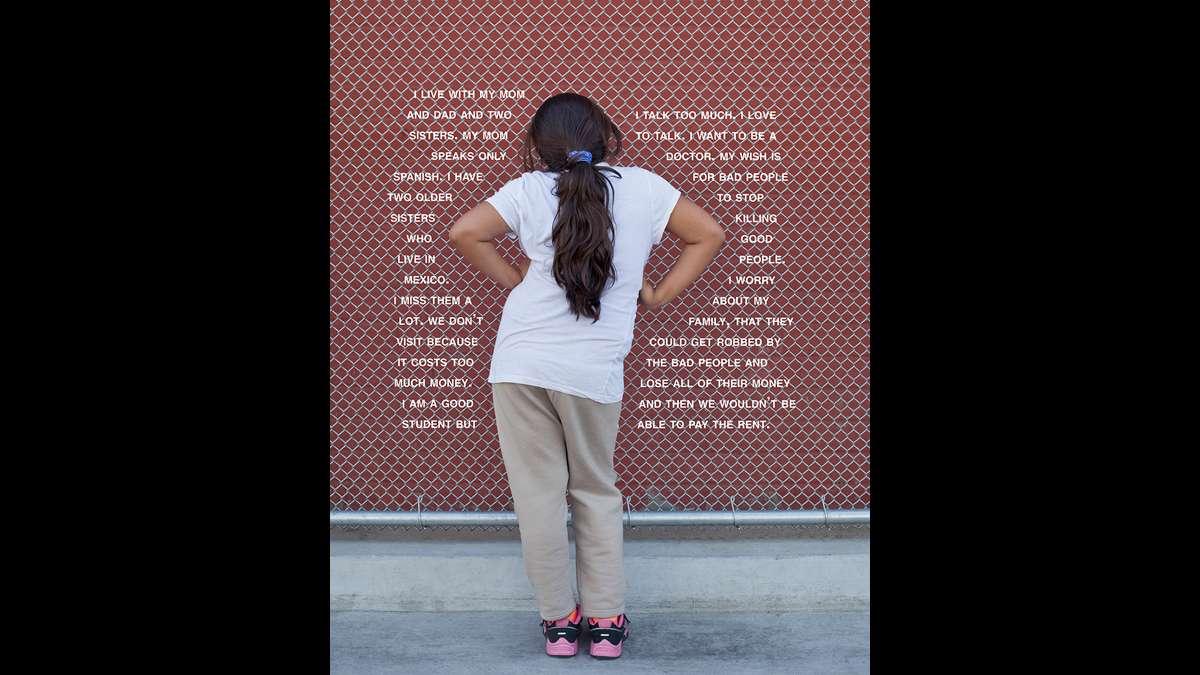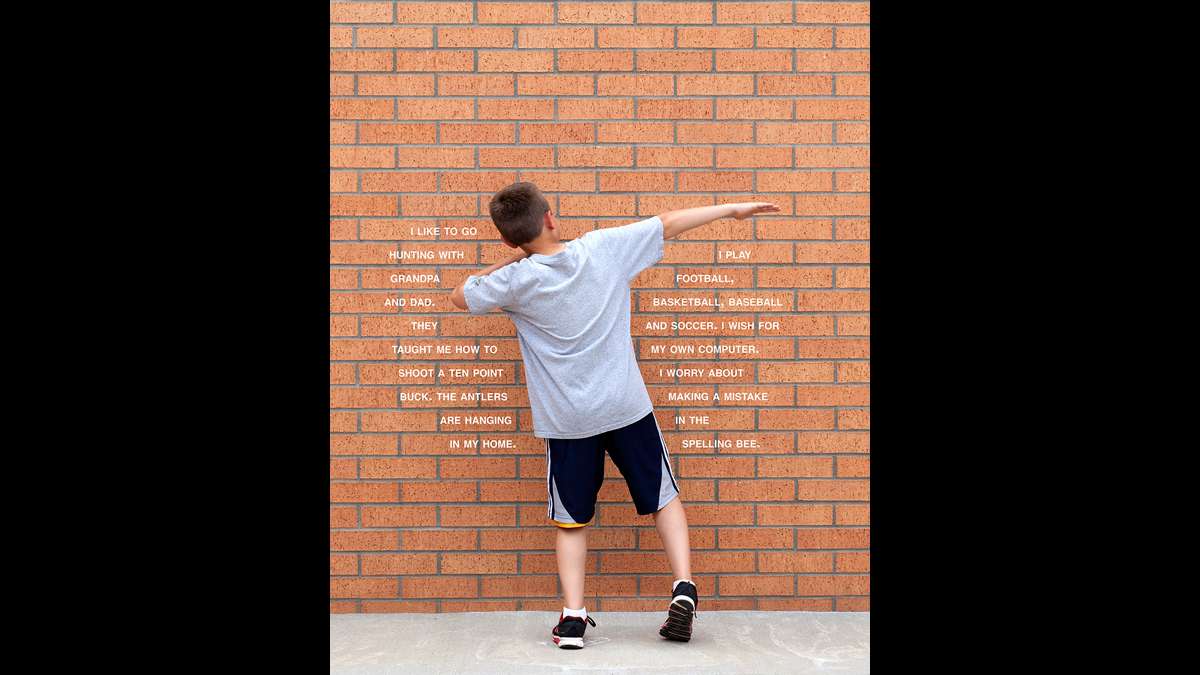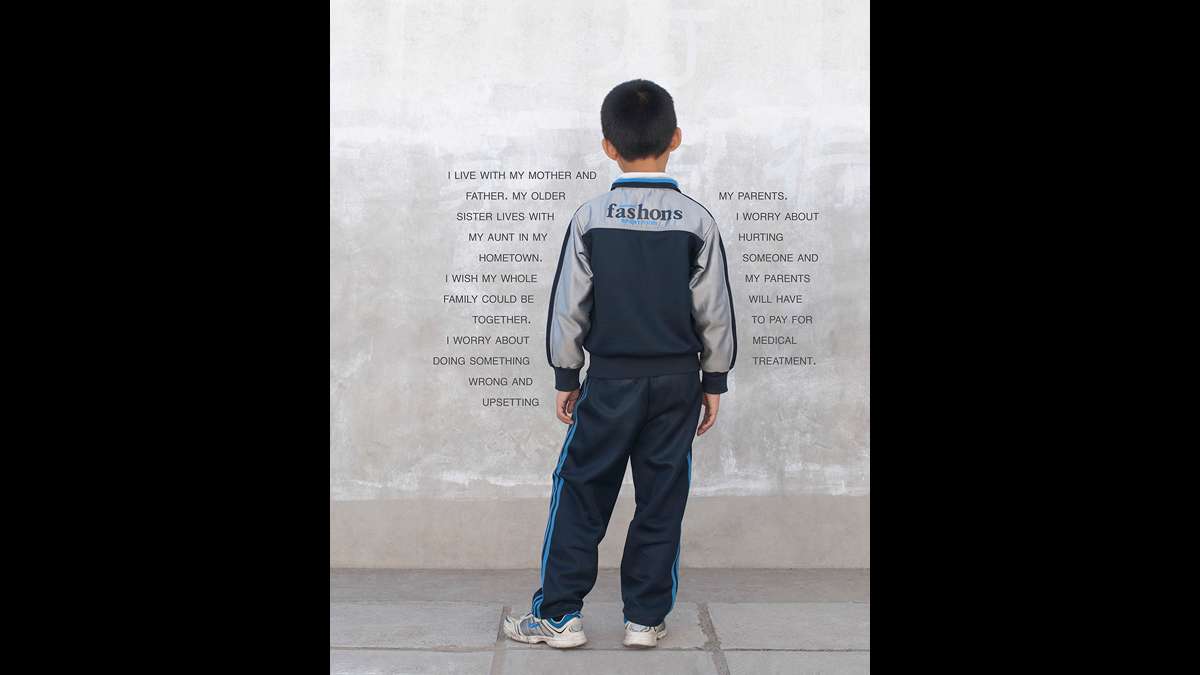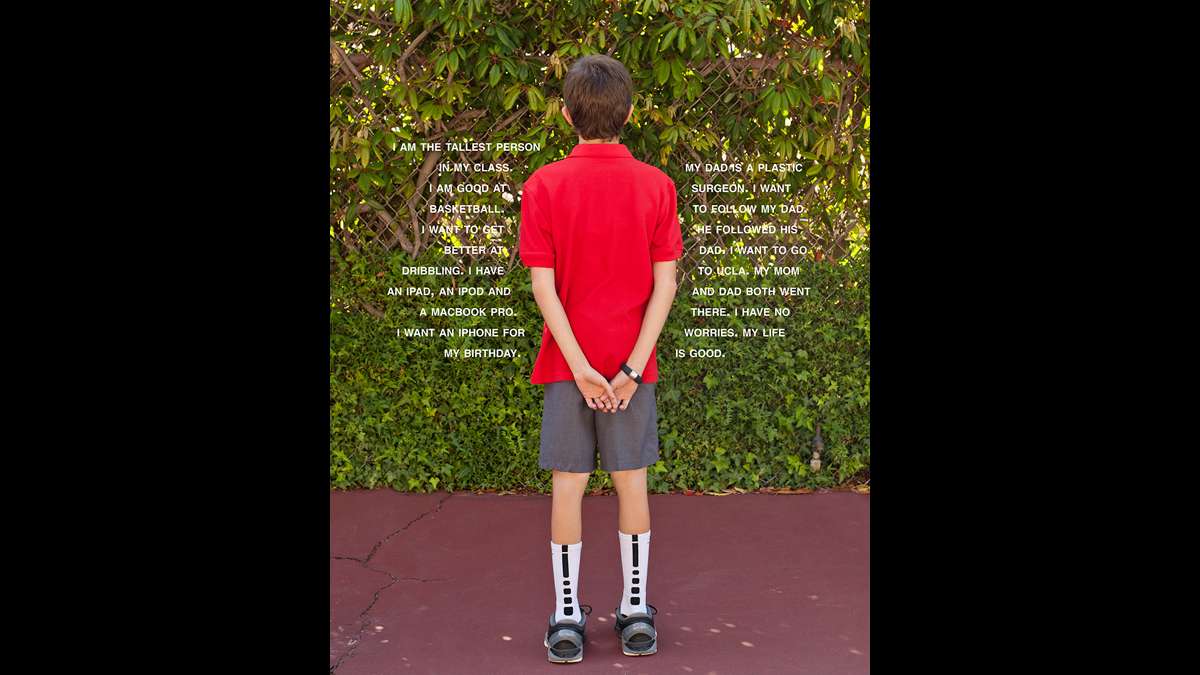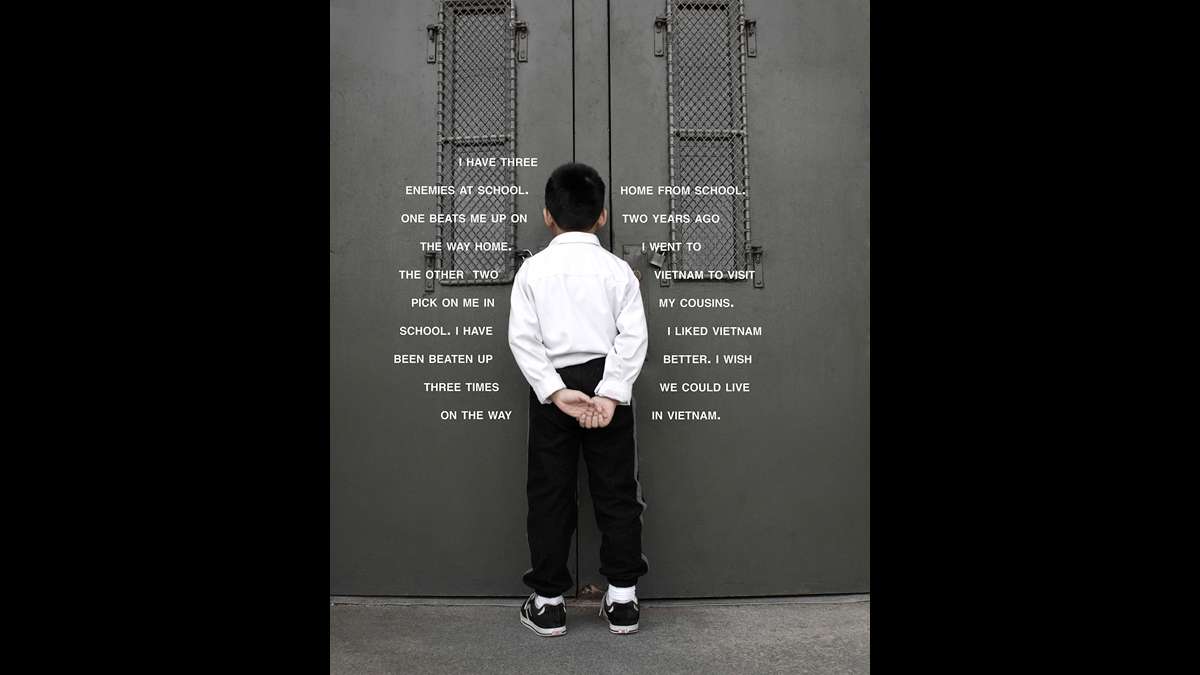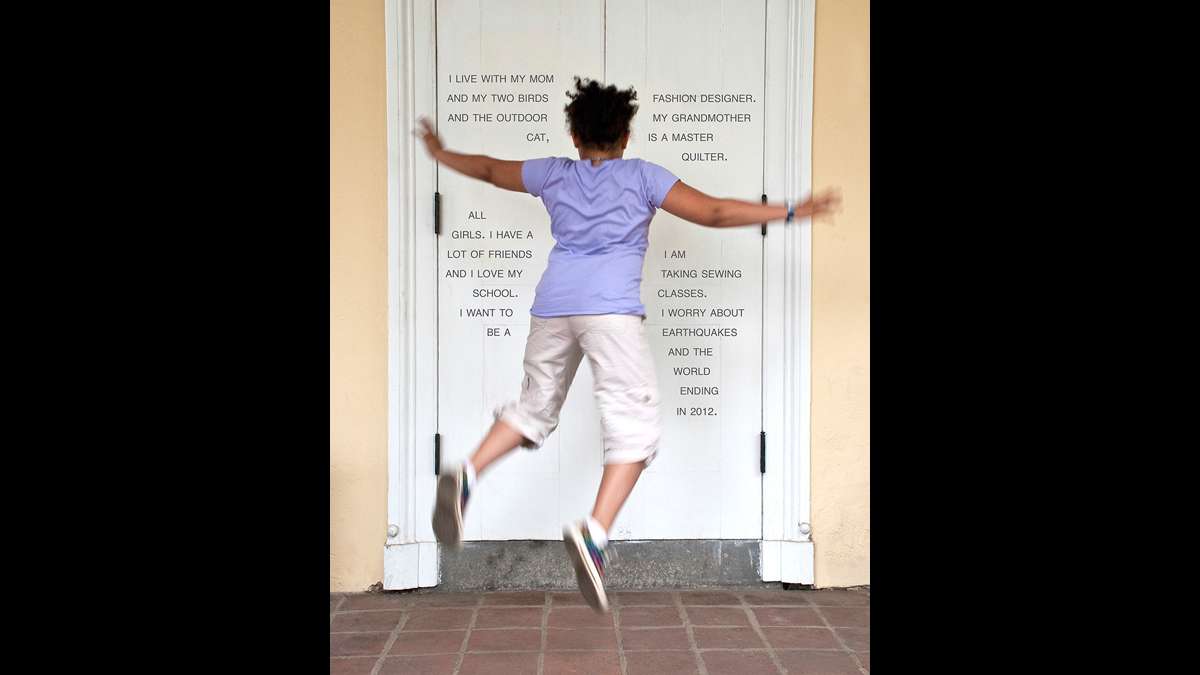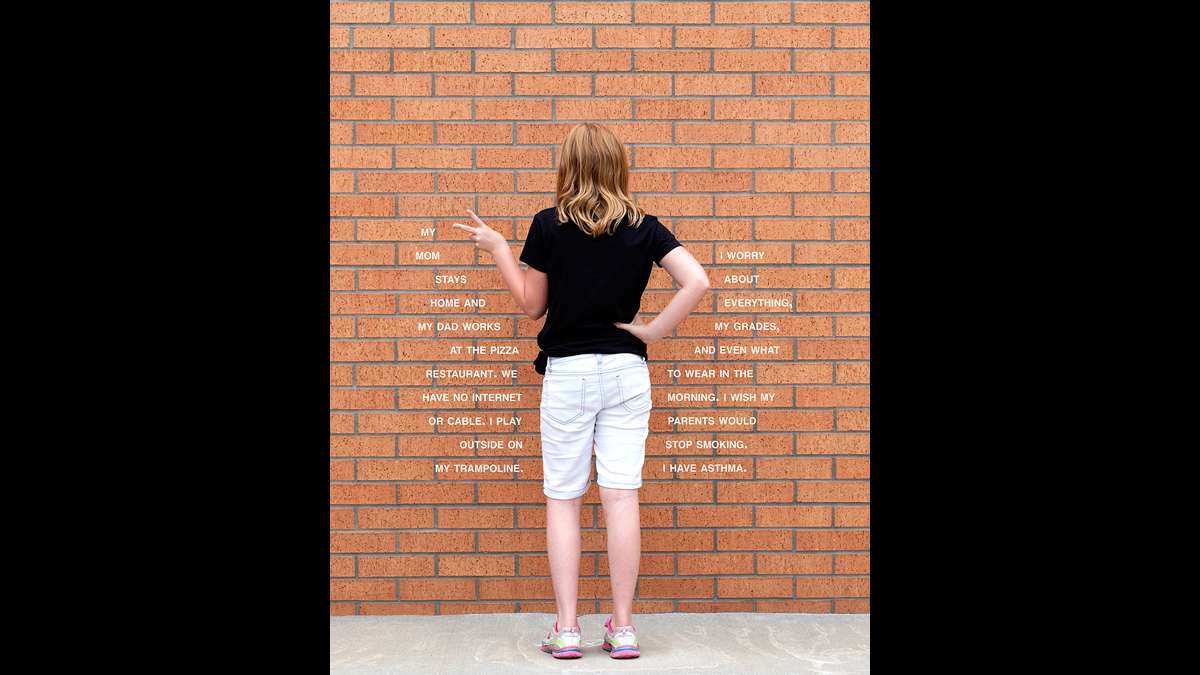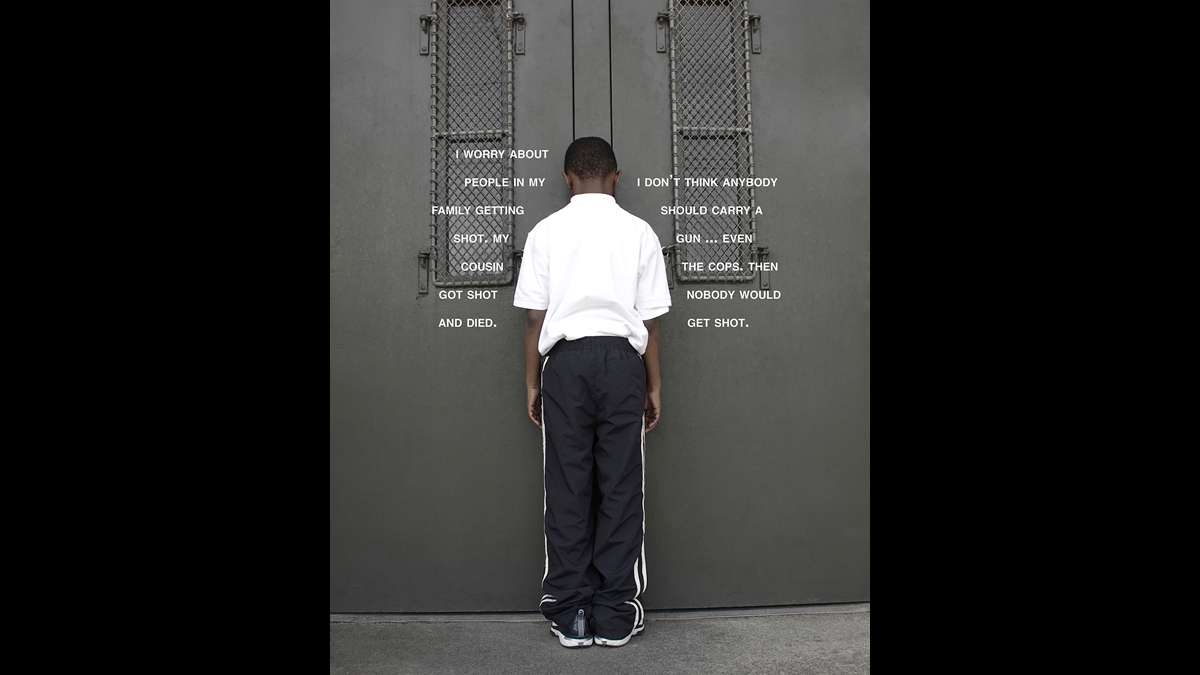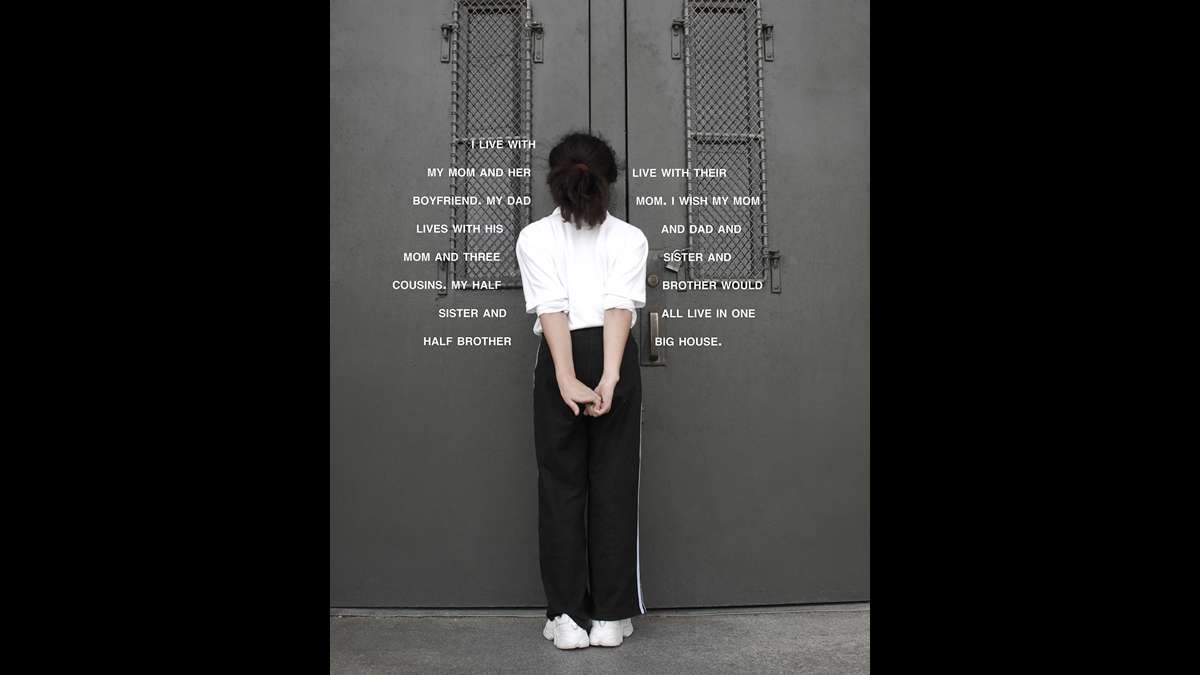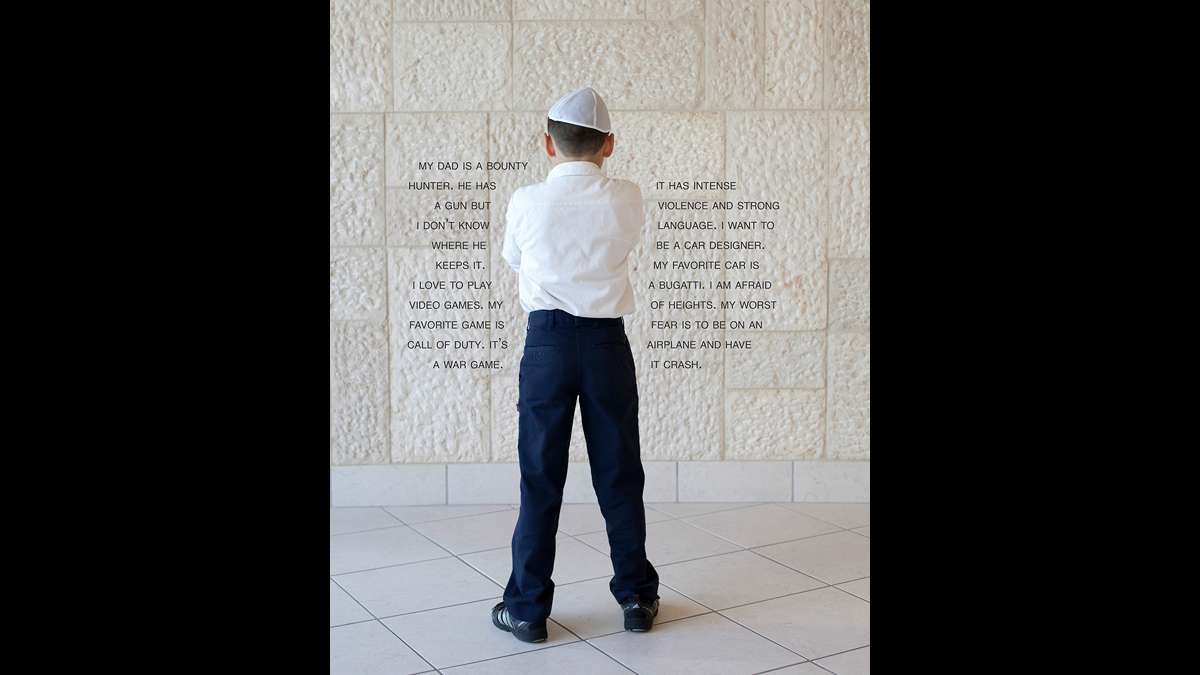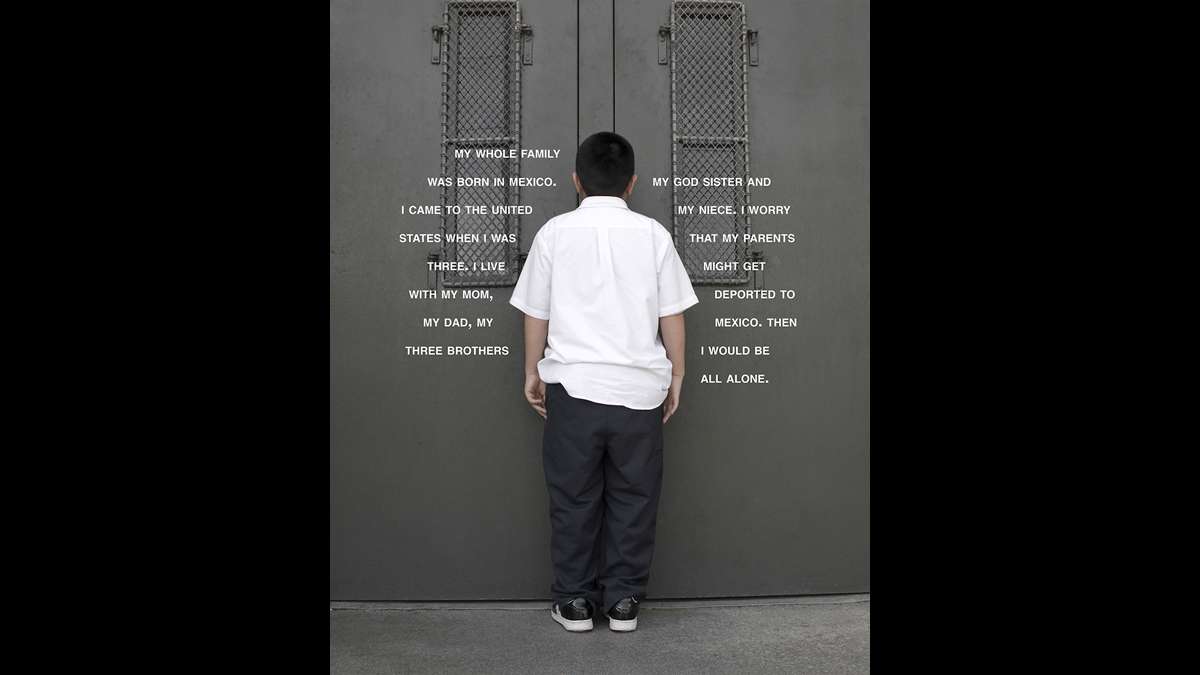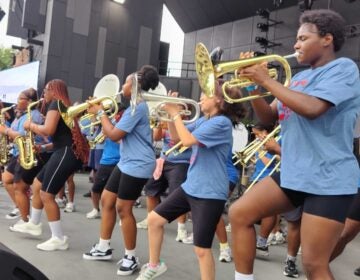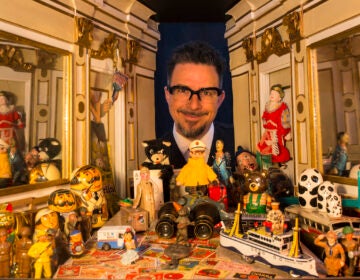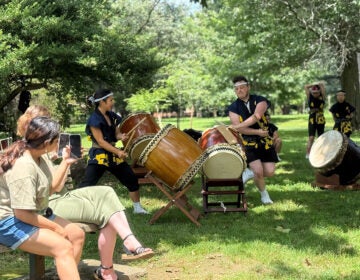Photographer captures the secret life of fourth graders
Photographer Judy Gelles was volunteering in a reading class at a fourth grade in a Philadelphia school when she realized that her students didn’t really relate to the stories in the books she was reading to them. So she asked them to tell their own stories and she would write them down and read them back.
The stories were so compelling and poignant that suddenly, she said, “This went from being a teaching project to an art project based on the 4th grader’s narratives.”
She was also forbidden to take portraits but told she could photograph the students if they turned their back to her. She turned that to an artistic advantage.
Gelles became interested in documenting what nine- and 10-year-olds from different schools and even different countries had in their minds. She asked three basic questions : Who do you live with? What are your wishes? And what do you worry about? The results were surprising and revealing.
She says, “The last two questions can capture everything about the culture they live in. Nine-year-olds are sophisticated enough to tell you about their life but they don’t censor their thoughts, so you really get open and honest answers.”
An example: “When I was in Korea and asked the students for their wishes, they all wanted to be number one in their class, wanted one hundred on the test. There were totally worried about their achievement. This is really a reflection of the culture on Korea.
When I asked kids in inner city Philadelphia schools, what they’re worried about, was getting shot or a family member getting shot, they worry about their personal safety.”
When Gelles went to a more affluent, Quaker school in the Philadelphia suburbs, “The students worried about world peace and hunger.”
For this project Gelles was looking for ethnic and economic variety to be able to compare differences and similarities.
She remembers visiting a predominantly Latino school in East Los Angeles where most of the students were recent immigrants, “dealing with separation from their families. They all want to do well in school and please their families.”
She observed many similarities with children in India who often have parents working in other countries, same with migrant children in China. They saw their grandmothers once a year and separation was a big issues.
“Grandmothers are huge influences in these children’s lives and almost everybody spoke of the grandmothers and worried about the death of a grandparent.”
As a way of thanks, Gelles prepares a book of photos and narratives to donate it to each school, in the hopes that it becomes a teaching tool.
Back in her studio, Gelles selects the best quotes, based on the three questions, and hand writes the text in an arch around each student’s photo.
“The way they stand, their posture is very telling,” Judy Gelles says. “I interview each student for 20 or 30 minutes, and distill the text. Most of these kids rarely spend a half hour with an adult who really listens to them, so they are thrilled.”
And she adds that “in a way this ended up being a social justice project.”
WHYY is your source for fact-based, in-depth journalism and information. As a nonprofit organization, we rely on financial support from readers like you. Please give today.


